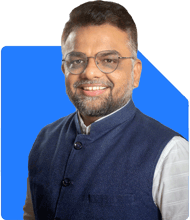Sir, as a student I am putting 100rs sip in aditya birla sunlife psu direct growth equity fund, but its only been 15 days since I've started and I've incurred 5 rs loss. Should I continue with this plan for 5 year or should I redeem it?
Ans: First and foremost, it's important to understand that mutual fund investments, especially those in equity, are subject to market volatility. A loss of Rs. 5 over just 15 days is not uncommon and doesn’t necessarily reflect the long-term potential of your investment. Mutual funds, particularly equity-based ones, are designed for long-term wealth creation, and such short-term fluctuations should not deter you from your financial goals.
Importance of Your Investment Horizon
You've chosen to invest in the Aditya Birla Sun Life PSU Direct Growth Equity Fund with a horizon of 5 years. This is a reasonable time frame for equity investments to potentially grow. However, equity investments can be volatile in the short term, and it's crucial to maintain patience and discipline with your investments.
Benefits of Continuing Your SIP
Rupee Cost Averaging: By continuing your SIP (Systematic Investment Plan), you are buying more units when prices are low and fewer units when prices are high. This averaging effect can lower the overall cost per unit over time, which benefits you when the market eventually rises.
Compounding Over Time: Staying invested for the long term allows your investments to benefit from compounding. This means the returns you earn on your investment will also start generating returns, leading to exponential growth over time.
Market Recovery: Markets go through cycles of highs and lows. By remaining invested, you give your investment time to recover and potentially grow, which is essential for achieving your long-term financial goals.
Reassessing Your Fund Choices
Before making any decision to continue or redeem your investment, it’s wise to take a closer look at your current fund choice:
Fund Performance: Analyze the historical performance of the Aditya Birla Sun Life PSU Direct Growth Equity Fund over 3, 5, and 10 years. While past performance is not indicative of future results, it can give you insight into how the fund has performed across different market cycles.
Fund Objective: Ensure that the fund’s investment objective aligns with your own financial goals. PSU equity funds focus on public sector companies, which may have different risk and return profiles compared to more diversified equity funds. Understanding this will help you determine if this is the right fund for you.
Why You Might Want to Avoid Direct and Sectoral Funds
While direct funds may seem appealing due to their lower expense ratios, they come with certain drawbacks:
Lack of Advisory Support: Direct funds do not offer the same level of advisory support as regular funds. As a student or a beginner investor, having access to the guidance of a Certified Financial Planner (CFP) can be crucial. A CFP can help you choose the right funds, adjust your portfolio based on market conditions, and align your investments with your financial goals.
Market Timing Risks: Direct investors often make decisions based on short-term market movements, which can lead to poor timing and reduced returns. Investing through a CFP can help you avoid such pitfalls and ensure a disciplined investment approach.
Similarly, sectoral funds, like a PSU equity fund, focus on specific sectors of the economy, which can be risky:
High Risk and Volatility: Sectoral funds are concentrated in one sector, making them more volatile and riskier compared to diversified equity funds. If the sector underperforms, your entire investment may suffer.
Limited Diversification: Sectoral funds lack diversification, which is a key principle in reducing risk in an investment portfolio. A more diversified fund can spread out the risk across various sectors and companies.
Considering a More Balanced Approach
For a beginner investor, or even for someone with limited time to actively manage investments, a balanced and diversified approach is generally more advisable. Here’s why:
Diversified Equity Funds: These funds spread investments across various sectors and companies, reducing the risk associated with any one sector. They provide a safer way to benefit from the growth potential of equities while mitigating some of the risks.
Regular Funds Through MFDs with CFP Credential: By investing in regular funds through Mutual Fund Distributors (MFDs) with CFP credentials, you gain access to professional advice. They can help you choose funds that align with your risk tolerance, investment horizon, and financial goals. They can also provide ongoing support, making adjustments to your portfolio as needed.
Aligning Your Investments with Financial Goals
Given your long-term goal of a 5-year investment horizon, it’s important to align your fund choices with this timeline. Equity funds generally require a minimum of 5-7 years to realize their full potential. Choosing funds that offer diversification and professional management can help you achieve your goals more effectively.
Final Insights
It's important not to make hasty decisions based on short-term performance. Investing in mutual funds, particularly through SIPs, is a long-term commitment. The Rs. 5 loss you've observed is a normal part of the investment journey. The key is to stay the course and focus on your long-term goals.
Consider avoiding direct and sectoral funds due to their inherent risks and the lack of advisory support. Opting for diversified equity funds and regular funds through a Certified Financial Planner can provide you with a more balanced and safer investment strategy.
If you're uncertain about your investment choices or need personalized advice, consulting a CFP can be beneficial. They can provide you with the necessary guidance to optimize your investments and align them with your financial goals.
Best Regards,
K. Ramalingam, MBA, CFP
Chief Financial Planner
www.holisticinvestment.in



























